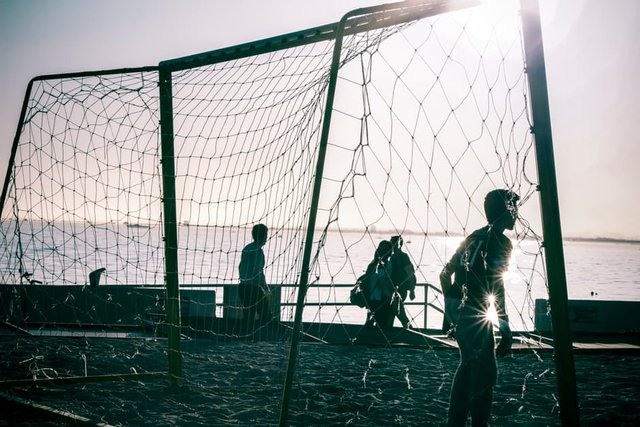Proverbs: which one impacted your life most?

Every now and then you’ll hear an expression that immediately resonates with you. It touches a spot deep within and brings to mind a truth you’ve always known. The crude elements of that truth, formed through various life experiences, connect into a cohesive idea in your mind when presented simply and eloquently as a proverb.
For me, it came from a book when I was about 6 years old. I don’t remember which book, or in what context, though I do remember the lightning bolt of understanding that shot through me as I sat pondering it.
“Give a man a fish, and you feed him for a day. Teach a man to fish, and you feed him for life.”
This proverb sparked a fascination with and investigation into giving, particularly collaborative giving, that helped build a deeper understanding of cooperation. A collaborative gift is an investment in a relationship and is tailored to improve the receiver as a person, as well as their circumstances. You're equipping them to improve their own circumstances by sharing your time, knowledge, and friendship—each gifts you've received from others at some point, and each far more valuable than any material gift.
I always knew that people are meant to be happy. We each experience rare moments of true and complete happiness, while also experiencing moments of deep sadness and loneliness. Regardless, I felt deep down that there is always a way for everyone in any situation to be happy. Competition didn’t make much sense to me, despite the fact that I loved winning and participated in several sports events like running and competitive soccer. I don’t believe there needs to be a winner and a loser; the necessity for losers is mandated by insecurity and ego, and we don’t need to perpetuate it.
Competition and Collaboration
Here’s what I love about sports: they’re built around a constant drive toward perfection involving goal-setting, discipline, and active self-improvement. There is a performance element; a game with equally matched competitors can go either way. However, when you’ve gotten to the point of actually competing in, say, a soccer match, 99.9% of your work is behind you. You've pretty much already done all the work to prepare yourself for that moment. The match itself is just a test. Its purpose is to see who’s prepared themselves better: who's set better goals, been more disciplined, achieved the right mindset, etc. At the end of such tests, both competitors are winners because they’ve gauged themselves against their peers, and are both the better for it. Both have won insofar as they’ve received valuable information contributing to further self improvement. To my 6-year-old self, that was the true value in sports!
You can imagine how weird it seemed, then, when the losing team started fussing and moaning—getting genuinely upset—after a loss. Obviously, everyone prefers winning; but in retrospect, the losing team learns more. They had the good fortune of competing against a superior team (superior in terms of preparation, and not some arbitrary/innate metric like talent or intelligence), so they had more opportunities to learn and improve! Losing may be a tough pill to swallow, but next time you experience a loss, try this mantra: "thanks for the lesson; let's get back to work".

Soccer practices were grueling. After 2 hours of drills and physical training, my rubbery legs could barely move; we got our asses kicked by the coach. When game time came around, however... we remembered that training. Our coach didn't buy us soccer shoes, shin guards, or jerseys. He never gave us anything besides his time and his knowledge. When I think of our coach, a great sense of pride and gratitude rushes through me, because he didn't give us fish; he taught us how to catch them.
Planning to Win
The key difference between world-class and mediocre athletes lies in the understanding of this simple fact: the game is never over. You’re never declared “winner forever” or “eternal loser”. At the end of each match, you get to take some lessons home and apply them to your training. These lessons will help you improve yourself and hone the qualities that make a great competitor/team: discipline, practice, focus, cooperation, and a winning attitude. This is the goal of competition, and winning any competition is the result of winning at the art of preparation. Work at those qualities that lead to being prepared at game time, and when game time comes around, it'll just be a formality. Let the result be a compass guiding you toward your next big goal.
“Professionals are a joy to watch. How do they become so good… or should I say, great?
They do little things in a great way every day. They work toward being at their very best, regardless. They know that amateurs compete with other people, but professionals compete with themselves. They study, practice, simulate every move, every day, many times. They want to be better today than they were yesterday."
That quote is an extract from a book by my mentor, Bob Proctor, called The ABCs of Success. To me, he is someone that truly understands successful living, and has dedicated his life to educating others in understanding their own potential and developing the ability to reach their goals.
If you want Fish... Learn to Fish!
What did I love about the “fishing” proverb? It’s so counterintuitive! Personally, at 6 years old I would’ve been so much happier with a fish (or some chocolate, or a dollar) than a fishing lesson. In fact, I’d probably be pissed off if I’d asked for a fish and instead been given a lesson about local fish species and how to catch them—particularly if I was hungry. Who cares?! I want fish now!
In the long run, however, teaching a person to fish is the best way towards a well-fed society. You become a better person by receiving such a gift; not only can you feed yourself, you also become able to feed other hungry 6-year-olds, and (if you were so inclined) pass on that knowledge to others.
I've always valued education thanks to this proverb's lessons. It helped me become my family's only university graduate, and may be entirely responsible for my career choices—I've always worked in education (from tutoring, student services, curriculum development, language teaching, and now academic publications) and probably always will. There's always more we can know, be, and do, and each new idea brings us toward a better self.
“The mind, once stretched by a new idea, never returns to its original dimensions.” -Ralph Waldo Emerson
Learning by doing
One of my most valued memories is helping my dad replace a doorknob in our neighbour’s house when I was 8. It was a huge moment for me because I was shy, clumsy, and my dad never asked anyone for help with anything. So when he took me with him to fix that doorknob, I was nervous, excited, and very eager to please. Although I could barely hold a hammer, dad had me help while he loosened the mechanism and explained to me what each piece was for, and how to safely use the tools. During this rare hands-on lesson, I drank up every word he said. I got increasingly nervous until, having been handed the drill, I accidentally pressed the trigger and it started spinning wildly, wrapping the cord around my arm until I couldn’t let go. Fortunately, dad unplugged it before it could do any lasting damage to either of us, and then sent me back to fetch the broom. Despite the near-disastrous ending, and “losing” as a first-time handyman... what a lesson! Over twenty years later, I still remember it like it was yesterday.
To drive this point home, here's a quote from dad himself:
"Education is the golden key that opens any door."
What's your favorite proverb, and why? How has it helped you become the person you are today? Please share in the comments!
References:
- Bob Proctor, The ABC's of Success: The Essential Principles from America's Greatest Prosperity Teacher
- John Wooden, Wooden: A Lifetime of Observations and Reflections On and Off the Court


never pet a burning dog. just kidding. really, though.
“There is no worse tyranny than to force a man to pay for what he does not want merely because you think it would be good for him.” Robert A Heinlein
I never heard that one; really interesting and true words. Thanks for reading!
i try not to pass up wisdom. thank you for the post.
I'm not sure if this is a proverb or just an old saying, but I have lived by this and it has stood me well down through the years.
If you live your life according to this rule, you won't go far wrong.
Don't eat yellow snow.
:-)
The largest hurdle to "teaching a man to fish" is that this assumes that the man wants to learn to fish. Often, it is difficult to find individuals who truly want to learn instead of you just doing things for them. I do enjoy teaching when the chance arises, but it should also be appreciated and not expected. Good post!
the funny thing about the alternative is that, no one ever has to learn how to starve, but starvation is one of the best teachers.
when i was a child, my father found me feeding squirrels in the back yard. he told me, "if you feed the squirrels, they'll have more babies, then, if we move away, no one will feed them and they will starve. it will be because you fed them that their babies starved."
Sometimes teaching the hard way is the best way in the long run. It is no coincidence that those who have been through tough times are the strongest.
wisdom of the ages.
That's pretty dark, but true if you feed them too much. It's the same reason we take down the bird feeder in late autumn, otherwise the birds will stay and freeze instead of flying south.
Updated proverb: "Give a squirrel some bread, and you kill its babies. Teach a squirrel to make bread, and you feed its babies for life"?
my dad grew up during the depression. it was pretty dark. they had to eat squirrels. maybe i can revamp the story for my kids.
Thanks, glad you enjoyed it! Yes, I think being able to share anything (even knowledge) without expecting anything in return takes practice :) hope you keep teaching!